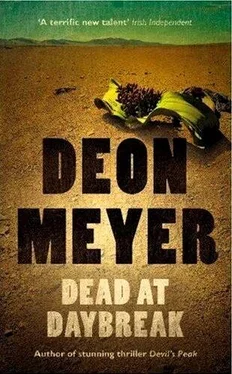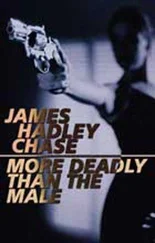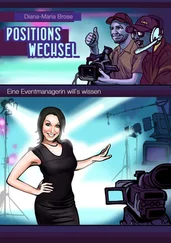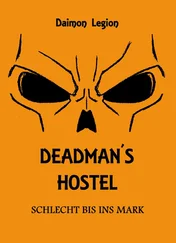You sold a fistful of your dollars on the black market to acquire the house and the business premises, to buy the first pieces of furniture. The business does well. You don’t need the rest of your dollars. You build, or have built, a walk-in safe for the rest. How much was left? A great deal. If you needed a walk-in safe. Or did you need to put something else in the safe? America – the wellspring of drug sales, the source of all dollars. Had you wanted to build a safe to hold your little white packets of heroin or cocaine, neatly stacked on the shelves, next to the dollars? Retailer, wholesaler, middleman?
Arms trade. Another reliable source of large amounts of dollars. In ’82 or ’83 – the flourishing years of South Africa’s Armscor and its thousand obscure affiliations and the rest of Africa with its terrorist acronyms and insatiable hunger for weapons.
The walk-in safe wasn’t quite big enough. Maybe not arms.
Why? If the business in classic furniture was thriving, why didn’t you simply burn the incriminating evidence?
He added the tuna to the garlic and parsley. He chopped the walnuts, added them as well, switched on the kettle.
Fifteen years later Jan Smit, formerly known as X, died. Finis. American assault rifle, one shot, execution style, back of the head.
The return of the original owner of the dollars? A renewed effort to sell the little white parcels – what went wrong?
Put all the little pieces together, Van Heerden. Form a picture in your head, create a story, concoct a theory. Adapt it with every new fragment. Speculate.
Nagel.
Boiling water in the pasta pot. Light the gas. Wait until it boiled again. Spaghetti ready. Cut the butter in pieces. Slice a lemon in half. Grate the parmesan. Ready.
Jan Smit alone at home. Knock at the door? Open. Hallo, X, long time no see. I’ve come to have a little chat about my dollars .
He heard something above the music.
A knock at the door.
His mother didn’t knock. She simply came in.
He walked to the door, opened it.
Hope Beneke. “I thought I’d pop in. I live in Milnerton.” The first, nervous flurry of the cold front blew her short hair in all directions. She had a briefcase in her hand.
“Come in,” he said.
He didn’t want her in his home.
“It’s going to rain,” she said as he closed the door behind her.
“Yes,” he said uncomfortably. Nobody came here, except his mother. Quickly he turned down the volume of the music.
“My goodness, something smells delicious,” she said. She put the briefcase down on a chair and opened it.
He didn’t say anything.
She took out the documents. She looked at the gas burners. “I didn’t know you could cook.”
“It’s only pasta.”
“It doesn’t smell like ‘only pasta.’ ” There was something in her voice…
“How did you know where I live?”
“I phoned Kemp. I phoned here first but there was no reply.”
Sympathy in her voice, a patience that hadn’t been there before. He recognized it. The reaction of people who knew , who knew the public part of Van Heerden’s history. Kemp. Kemp had told her. Fuck Kemp, who couldn’t keep anything to himself. He didn’t need her sympathy.
Even if Kemp, and now she, had it all wrong.
She handed him the sheets of paper. “Marie said you wanted to know if the houses were mortgaged.”
“Yes.” He felt the discomfort of standing while talking, with furniture around them. He didn’t want her to sit down. He wanted her to leave.
“It doesn’t look like it. That’s the usual letter and account that attorneys send out after a property has been transferred to the new owner. To confirm that the registration has been completed at the Deeds Office. If there were mortgages, the accounts would have mentioned them. Generally complete figures about outstanding amounts, or the surplus, if the mortgages were larger than the purchase price.”
He stared at the documents. He didn’t quite grasp it all.
“There’s nothing about that here.”
“That’s why I think there was no mortgage.”
“Oh.”
He looked at the accounts. It established the price of the two houses. R43,000 for the business one; R52,000 for the home.
The water in the pot boiled with an explosive hiss. He turned it down.
“My timing was bad,” she said. “You’re probably expecting guests.”
“No,” he said.
Yes . He should have said yes.
“Did you discover anything about the identity document?”
He stood in the no-man’s-land of his kitchen, Hope uncomfortable among his chairs.
Fuck .
“You’ll have to sit down,” he said.
She nodded, gave a small smile, tucked her skirt neatly underneath her, sat down in the gray chair with the frayed arms, and looked at him expectantly and with empathy.
“Smit isn’t Smit,” he said.
She waited.
“The ID is forged.”
He saw her eyes widen slightly.
“Professional forgery. Possibly the work of one Charles Nieuwoudt, possibly done in the late seventies or early eighties.”
He would have to tell her the whole thing now. She sat there, waiting, her attention wholly fixed on him.
“There’s more,” he said. “I have a theory.”
The nod was barely visible. She was waiting, impressed.
Slowly he took a deep breath. He told her about his day, chronologically: Home Affairs. Ngwema’s phone call, his visit to Van As, the bookkeeping, the dates and amounts, Orlando, gave her an overview. Explained the mental jump based on a piece of paper that, more than fifteen years ago, held dollars together in a neat parcel, linked it to the walk-in safe. The time, all of it in 1983, the cash acquisition of two houses, the R15,000 with which the business was started. Aware that she was looking at him, he was looking past her, staring at the door, putting his theory to her.
“Sheesh,” she said when he was done. He saw her dragging her fingers through her short hair.
“Someone knew,” he said. “Everything points to the fact that someone knew. Someone with an M16 and a blowtorch arrived with premeditated intent. It’s hardly standard issue when you’re robbing a house. At the very least they had had to know that Jan Smit had a fortune in some form or other and that it would take a certain amount of persuasion to get it from him. Someone who knew him in his previous life.”
She nodded.
A wind-driven gust of rain thudded against the window.
“That means Jan Smit knew where to get a forged ID. It means he knew how to get rid of hot dollars. That means he built the safe to hide something, not for security. That means Van As never really knew him. Or she’s lying, but I don’t think so.”
He leaned back against a kitchen cupboard, folded his arms in front of him.
“You’re very good,” she said.
He tightened his arms. “It’s a theory.”
“It’s a good theory,” she said.
He shrugged. “It’s all we’ve got.”
“And tomorrow?”
He hadn’t really thought about tomorrow. “I don’t know. The dollars are the key. I want to find out who controlled the black market in currency in 1983. And who were the major drug dealers. But maybe it’s something completely different. He may have stolen the money in America. Or it could’ve been an arms transaction. Who knows, in this fucking country of ours.”
He wondered whether she would react to his language again. She must leave now , he thought. He wasn’t going to offer her coffee.
“I’ll dig. There are a few places. A few people…”
“Is there anything I can do for you?”
“You’ll have to decide what you’re going to tell Van As.”
She got up slowly, as if she was tired. “I don’t think we’ll tell her anything.”
Читать дальше
